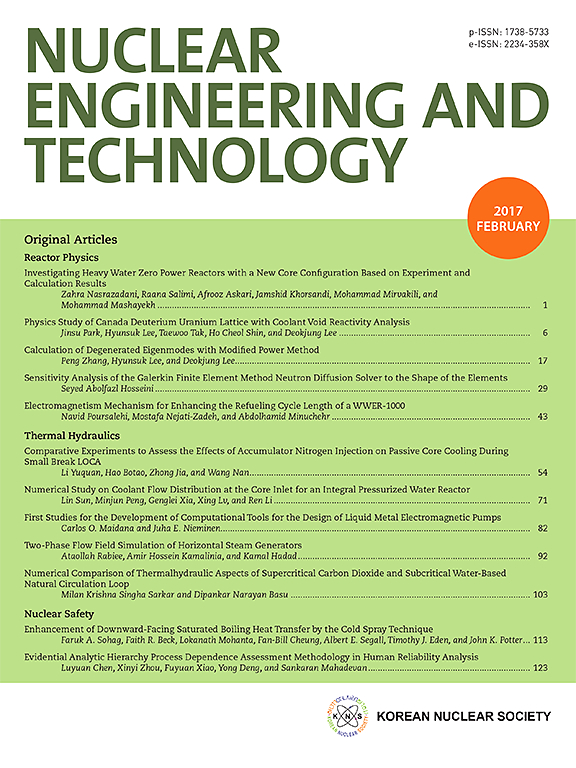Public acceptance of spent nuclear fuel use for new energy in Japan
IF 2.6
3区 工程技术
Q1 NUCLEAR SCIENCE & TECHNOLOGY
引用次数: 0
Abstract
With the nations’ energy security under threat and prices rising, several countries are shifting back in their energy policy to nuclear energy. Leading the recent nuclear boom to dreams, not nightmares, will depend on how the waste issues are resolved. This study aims to understand and break down public acceptance, attitudes, and perceptions of new energy sourced from spent nuclear fuel in Japan. New energy sourced from spent nuclear fuel indicates a technology or application, such as nuclear batteries, that extracts and utilizes the remaining valuable energy from nuclear fuel already used. Based on a web survey of 1000 Japanese in 2022, we found no statistical difference in the absolute mean of public acceptance between new energy sourced from spent nuclear fuel and nuclear power. In addition, the simulation result predicts that acceptance will increase as assessed scientific knowledge on radioactive waste, radiation, and nuclear power-related information increases. Structural Equation Modeling showed that assessed scientific knowledge, trust in the government, and environmental awareness had significant effects on benefit and risk perceptions related to new energy, and both perceptions would directly impact new energy acceptance. The findings will provide insights into developing energy from or recycling technology for spent nuclear fuel.
日本公众对使用乏核燃料作为新能源的接受程度
由于各国的能源安全受到威胁,价格不断上涨,一些国家的能源政策正重新转向核能。将最近的核工业繁荣引向梦想,而不是噩梦,将取决于如何解决核废料问题。本研究旨在了解和分析日本公众对利用废核燃料开发新能源的接受程度、态度和看法。从废核燃料中获得的新能源是指一种技术或应用,如核电池,从已经使用的核燃料中提取和利用剩余的有价值的能量。根据2022年对1000名日本人的网络调查,我们发现,在公众接受度的绝对平均值上,乏核燃料新能源和核电没有统计学差异。此外,模拟结果预测,随着放射性废物、辐射和核电相关信息的评估科学知识的增加,接受度将增加。结构方程模型表明,被评估的科学知识、对政府的信任和环境意识对新能源相关的利益和风险感知有显著影响,这两种感知直接影响新能源的接受程度。这些发现将为从废核燃料中开发能源或回收技术提供见解。
本文章由计算机程序翻译,如有差异,请以英文原文为准。
求助全文
约1分钟内获得全文
求助全文
来源期刊

Nuclear Engineering and Technology
工程技术-核科学技术
CiteScore
4.80
自引率
7.40%
发文量
431
审稿时长
3.5 months
期刊介绍:
Nuclear Engineering and Technology (NET), an international journal of the Korean Nuclear Society (KNS), publishes peer-reviewed papers on original research, ideas and developments in all areas of the field of nuclear science and technology. NET bimonthly publishes original articles, reviews, and technical notes. The journal is listed in the Science Citation Index Expanded (SCIE) of Thomson Reuters.
NET covers all fields for peaceful utilization of nuclear energy and radiation as follows:
1) Reactor Physics
2) Thermal Hydraulics
3) Nuclear Safety
4) Nuclear I&C
5) Nuclear Physics, Fusion, and Laser Technology
6) Nuclear Fuel Cycle and Radioactive Waste Management
7) Nuclear Fuel and Reactor Materials
8) Radiation Application
9) Radiation Protection
10) Nuclear Structural Analysis and Plant Management & Maintenance
11) Nuclear Policy, Economics, and Human Resource Development
 求助内容:
求助内容: 应助结果提醒方式:
应助结果提醒方式:


